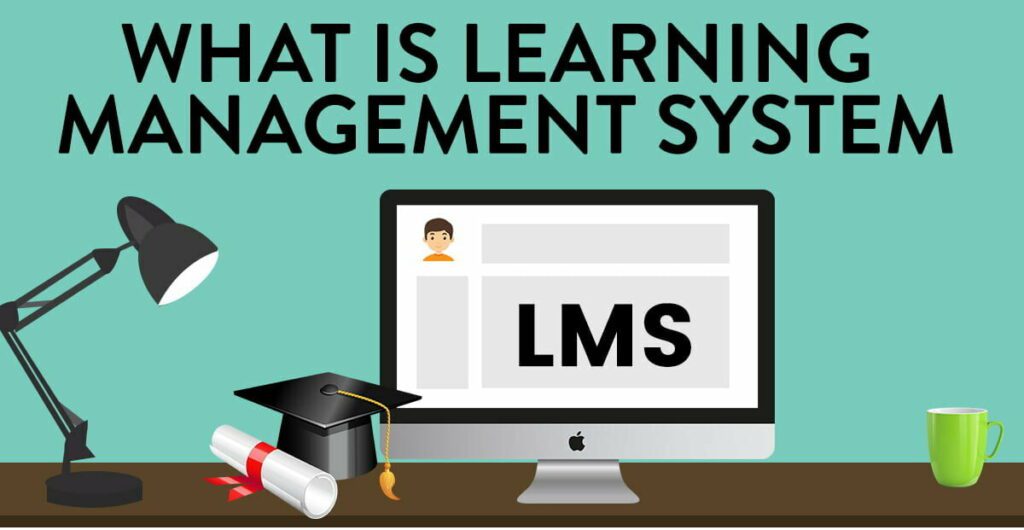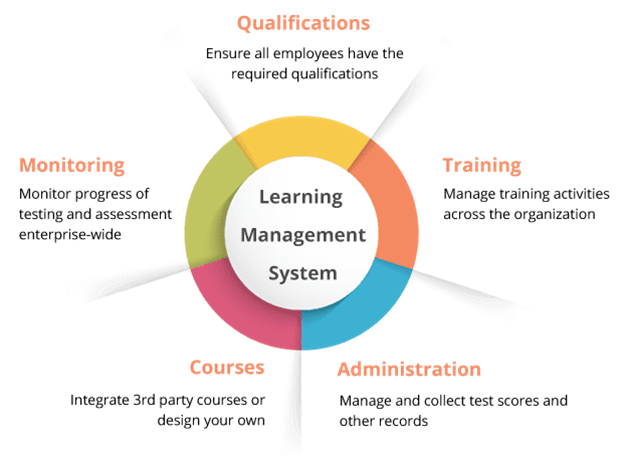LMS SG: How to Maximize Learning Results with the Best LMS Solutions
LMS SG: How to Maximize Learning Results with the Best LMS Solutions
Blog Article
Selecting the very best Learning Monitoring System for Your Company
Selecting the optimal Knowing Management System (LMS) for your organization is a diverse decision that requires cautious factor to consider of different components. From specifying precise knowing objectives that reverberate with your calculated vision to assessing individual experience, each aspect plays a pivotal function in the overall effectiveness of the system. In addition, recognizing combination abilities and making sure scalability for future requirements can not be neglected. As companies pursue efficiency and development, the option of an LMS comes to be increasingly substantial. What are the crucial considerations that can affect your decision-making procedure?
Define Your Understanding Purposes
Defining clear knowing objectives is crucial for the successful execution of a Discovering Monitoring System (LMS) These objectives function as a roadmap, assisting the advancement of content, assessments, and total training methods within the LMS. By developing particular, quantifiable, achievable, appropriate, and time-bound (SMART) objectives, organizations can make certain that the discovering experiences are lined up with their critical goals and student demands.
Effective knowing objectives should encapsulate what students are anticipated to understand or have the ability to do upon completion of a course or training program. This quality not only aids in content creation yet likewise promotes the evaluation of learner progress and the general effectiveness of the LMS. LMS SG. Well-defined purposes allow stakeholders to evaluate whether the chosen LMS features and performances line up with their educational objectives.
Assess Individual Experience
Once learning goals have been established, reviewing user experience comes to be a crucial following action in choosing a suitable Understanding Monitoring System (LMS) Customer experience includes the overall contentment and simplicity with which students connect with the system. A well-designed LMS must assist in intuitive navigating, making sure that customers can situate training courses, materials, and assistance effortlessly.
To assess customer experience, think about performing functionality screening with a depictive sample of end-users. Key elements to assess consist of the LMS's interface style, access features, mobile compatibility, and the clearness of instructions provided.
In addition, evaluate the availability of assistance sources, such as tutorials and help facilities, which can improve the customer experience. The responsiveness of customer support is likewise crucial; prompt aid can dramatically alleviate frustrations that users might run into. Inevitably, picking an LMS that focuses on customer experience not just enhances the learning procedure but additionally fosters greater involvement and complete satisfaction amongst learners.

Evaluate Combination Capacities
Identifying the value of seamless performance, evaluating assimilation capabilities is important when picking a Knowing Monitoring System (LMS) An efficient LMS ought to help with interoperability with existing systems, such as Personnel Administration Systems (HRMS), Client Partnership Administration (CRM) platforms, and other academic devices. This integration improves data circulation, reduces administrative problems, and makes sure a cohesive learning atmosphere.
When evaluating an LMS, think about the types of combinations supplied. Try To Find Application Programming Interfaces (APIs), Single Sign-On (SSO) capacities, and pre-built ports that enhance assimilation processes. Furthermore, validate the LMS's capability to integrate with third-party tools, such as content libraries or analysis systems, which can substantially improve the knowing experience.

Take Into Consideration Scalability and Versatility
As companies progress, the capability of a Learning Management System (LMS) to range and adjust ends up being increasingly vital. A scalable try here LMS can fit growth in customer numbers, training course offerings, and web content without endangering efficiency or individual experience. As organizations increase, whether via raised employees, new areas, or diversified training demands, the LMS ought to effortlessly grow alongside these changes.
Adaptability is just as vital; an efficient LMS should sustain different discovering modalities, such as online, mixed, and mobile understanding. This versatility enables organizations to react rapidly to emerging patterns in training and advancement, ensuring that they can offer engaging and appropriate understanding experiences - LMS SG. Furthermore, the system ought to provide customizable features, enabling companies to tailor the LMS to their particular requirements and branding
Additionally, a flexible LMS should integrate easily with existing platforms and devices, facilitating a cohesive understanding ecosystem. Therefore, when choosing an LMS, it is crucial to examine not only its current abilities yet additionally its possible to adapt and grow in alignment with the organization's calculated objectives and evolving learning demands. This insight can substantially enhance the long-lasting stability of the chosen LMS.
Evaluation Prices and Budgeting
When evaluating a Learning Monitoring System (LMS), reviewing costs and budgeting is important to make sure that the investment straightens with the company's monetary capacities and calculated purposes. my website Organizations should start by determining the overall price of ownership, that includes licensing charges, execution expenses, upkeep, and any type of added expenditures such as training and technical assistance.
It is vital to contrast various LMS choices, as prices designs can differ significantly among vendors. Some systems might offer a subscription-based version, while others might bill a single cost. Organizations needs to also take into consideration the scalability of the LMS; as they grow, the cost structure might alter, impacting long-lasting budgeting.
Final Thought
Selecting an appropriate Knowing Management System (LMS) is necessary for accomplishing business learning objectives. An extensive evaluation of user experience, assimilation abilities, scalability, and monetary considerations guarantees that the chosen LMS lines up with critical objectives and learner demands. By systematically resolving these factors, companies can improve finding out end results, assist in smooth procedures, and support future growth. Inevitably, the right LMS offers as a crucial device in promoting a reliable knowing environment and driving organizational success.
Picking Singapore LMS the optimal Learning Monitoring System (LMS) for your company is a complex choice that calls for mindful consideration of different aspects.Defining clear understanding objectives is important for the effective execution of a Discovering Monitoring System (LMS)Once discovering objectives have been developed, assessing customer experience becomes a crucial next step in picking a suitable Discovering Management System (LMS)As companies evolve, the ability of a Knowing Monitoring System (LMS) to scale and adapt becomes increasingly crucial.Selecting a suitable Learning Monitoring System (LMS) is essential for achieving organizational understanding objectives.
Report this page